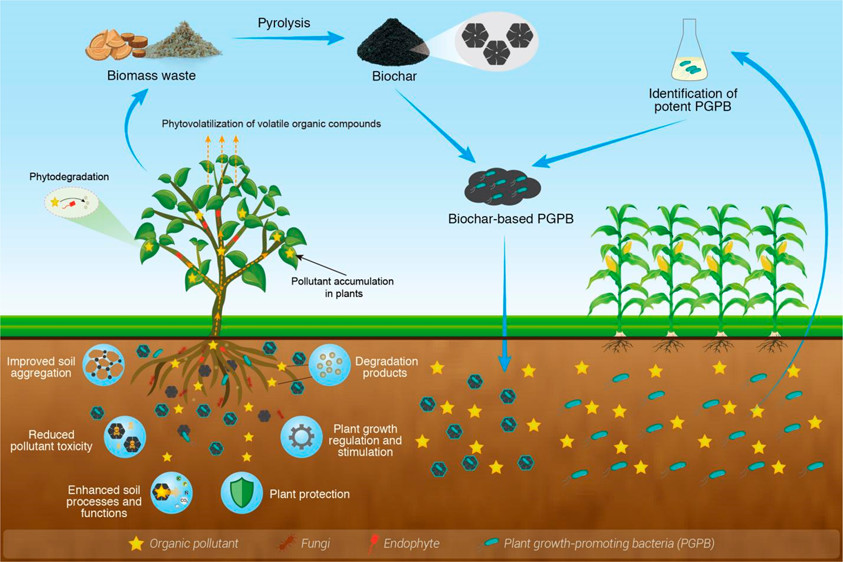Integrating Biochar, Bacteria, and Plants for Sustainable Remediation of Soils Contaminated with Organic Pollutants

The contamination of soil with organic pollutants has been accelerated by agricultural and industrial development and poses a major threat to global ecosystems and human health. Various chemical and physical techniques have been developed to remediate soils contaminated with organic pollutants, but challenges related to cost, efficacy, and toxic byproducts often limit their sustainability. Fortunately, phytoremediation, achieved through the use of plants and associated microbiomes, has shown great promise for tackling environmental pollution; this technology has been tested both in the laboratory and in the field. Plant–microbe interactions further promote the efficacy of phytoremediation, with plant growth-promoting bacteria (PGPB) often used to assist the remediation of organic pollutants. However, the efficiency of microbe-assisted phytoremediation can be impeded by (i) high concentrations of secondary toxins, (ii) the absence of a suitable sink for these toxins, (iii) nutrient limitations, (iv) the lack of continued release of microbial inocula, and (v) the lack of shelter or porous habitats for planktonic organisms. In this regard, biochar affords unparalleled positive attributes that make it a suitable bacterial carrier and soil health enhancer. Professor Wang Fang and her team propose that several barriers can be overcome by integrating plants, PGPB, and biochar for the remediation of organic pollutants in soil. Here, they explore the mechanisms by which biochar and PGPB can assist plants in the remediation of organic pollutants in soils, and thereby improve soil health. They analyze the cost-effectiveness, feasibility, life cycle, and practicality of this integration for sustainable restoration and management of soil.
Source: Environmental Science & Technology

